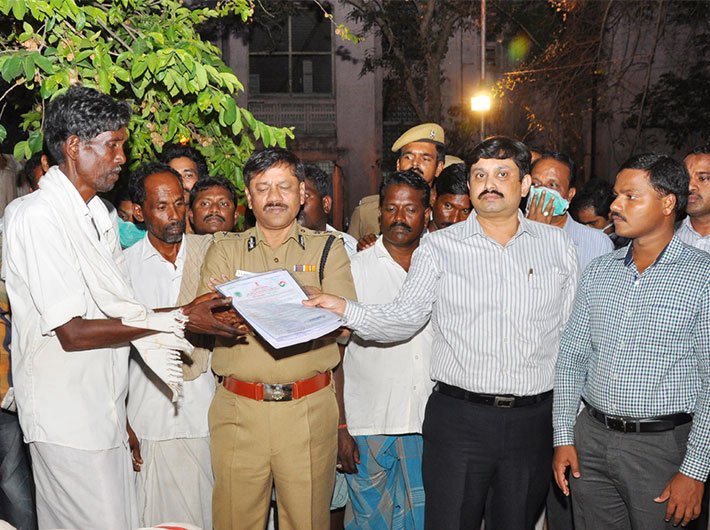In the early 1990s, a piece of graffiti scribbled on a wall near the Goa coastline was conspicuous for its message. It said India would have become a superpower only if it could have nabbed Veerappan. The notorious sandalwood smuggler was a terror in Karnataka and Tamil Nadu, far away from Goa. Yet, the message conveyed the imagery of an effete Indian state whose combined strength was found inadequate to match the jungle warfare tactics of the brigand.
This message coincided with the BJP’s clamouring across the country over the projection of India as a soft state. Veerappan’s ruthless escapades across Karnataka and Tamil Nadu and the Indian state’s helplessness in containing him were seen as emasculation of the state. And the graffiti was a taunt at the Indian state and its obsession with the superpower status.
Times have changed now. The trigger-happy policemen of Andhra Pradesh and newly carved out Telangana are too happy to deliver instant justice. Five Muslims accused of killing policemen were shot dead in police custody. The story of these killings runs on the familiar script straight out of a Bollywood flick: the accused tried to snatch the weapons of the escorting police party who retaliated in self-defence, killing all of them on the spot. On the same day, near Seshachalam forest touching the Andhra Pradesh-Tamil Nadu border, 20 labourers were shot dead by the police who branded them as forest smugglers. The Andhra Pradesh police took them into custody and executed them in cold blood.
News of such custodial killings in Uttar Pradesh, Bihar, Punjab, Jammu and Kashmir and the northeast were usually received with equanimity. There are many files of custodial killings in the UP police headquarters and the CBI headquarters in Delhi gathering dust without any hope of getting retrieved to take them to the legal and logical outcome. In these regions, the state is perceived to be a macho entity which claims an inalienable right to kill its citizens at the slightest pretext. The charade of judicial scrutiny in many such incidents, like the killing of 40-odd Muslims in Hashimpura and 13 Sikhs in Pilibhit, only reaffirmed the brutalisation of the state.
But the state apparatus was less criminalised in the south. Though the police in Andhra Pradesh was notorious for enacting extrajudicial executions of Maoists, they also maintained a pretext of abiding by the rulebook to avoid treading on human rights issues. But the April 7 killings by the Telangana and Andhra Pradesh police have removed even that fig leaf and exposed the hideous face of the state.
The trend is sinister with ominous forebodings. There are all possibilities that the killings of Tamil tribals would trigger a clash of superior masculinity between the two states of Andhra Pradesh and Tamil Nadu. And the possibility of retribution by Tamil Nadu would expose innocent citizens to a serious risk to life. Curiously enough, though the state has been honing its killer instincts to acquire the features of a tough state, its targets are still not smugglers but innocent tribals used by smugglers to run errands for them. Similarly, the extrajudicial execution of five suspected terrorists would erode the minority’s confidence in the country’s legal system and cause further alienation.
All this indicates that the Indian state’s fascination for machismo is becoming a disturbing trend. The concept of a strong state is not akin to a criminal state. On the contrary, strong states are just, equitable and pro-people. The killings in Telangana and Andhra Pradesh and the ostrich-like approach of the centre would not be in congruence with the international expectations of an India of 21st century. The graffiti in Goa in the 1990s appear quite prophetic in its message. We would become a superpower only if we could nab criminals and hold them accountable to the law of the land. The extrajudicial executions are a sign of a failed state.
ajay@governancenow.com
(The article appears the April 16-30, 2015, issue)

